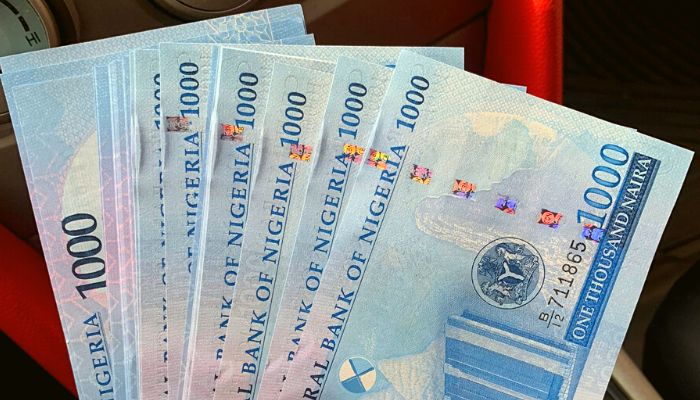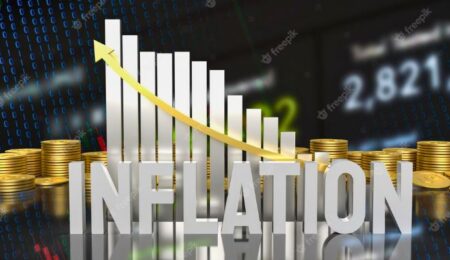The next step for Nigeria after a bold first move towards unifying the country’s problematic multiple exchange rates is to boost dollar supply into the market, according to several economists polled by BusinessDay.
The Central Bank of Nigeria (CBN) allowed the market to determine the naira exchange rate for the first time in years on Wednesday, in a move that has been widely cheered by investors.
The naira had weakened by over 20 percent to an intra-day rate of between N750 and N755 per US dollar before strengthening to N644 at the end of the day’s trading, according to FMDQ data. The rate had tightly hovered at around N460 per US dollar since the beginning of the year.
The development means buyers and sellers of foreign currency in the official FX market are now allowed to quote rates they find comfortable in the FX market, as against previous practice where rates were dictated by the Central Bank of Nigeria (CBN).
Nigeria’s stock market extended gains for the second day running, gaining 3.13% to settle at 59,985.10 points as investors cheered Nigeria’s attempt to unify its multiple fx rates.
The market had soared to a 15-year high the day before following new President Bola Tinubu’s suspension of CBN governor Godwin Emefiele whose unorthodox policies are now making way.
With Tinubu showing he is ready to walk the talk of collapsing the country’s multiple exchange rate practice that has spooked investors and drained dollars out of Africa’s largest economy, economists say the vital next step is to unlock dollar inflows into the country.
That would entail clearing the dollar backlog in the market, providing a hedge mechanism that is priced in line with the market and ensuring market yields are attractive to Foreign Portfolio Investors (FPI).
Read also: Nigeria officially floats naira as I&E rate hits N755/$
Enthroning transparency in the market and removing all controls around domiciliary accounts are also crucial.
“The convergence of the rates is only the first step, the next step is the most crucial and that is to boost supply into the market,” a source told BusinessDay.
“No foreign investor will come without a hedge and that can only come when there is assurance of supply. That’s the hard work,” the source said.
Muda Yusuf, an economist and CEO of the Centre for the Promotion of Private Enterprise (CPPE), said the depreciation in the official rate would boost government revenue by a minimum of N4 trillion through additional remittance of exchange rate surplus to the federation account by the CBN.
Yusuf however also harped on the important next step of boosting dollar supply.
“The CBN should position itself for periodic intervention in the forex market, as and when necessary, to stabilize the exchange rate and prevent volatility,” Yusuf said.
“This should happen not by fixing the rate, but by boosting supply to the extent that the reserves can support,” Yusuf said.
Nigeria’s external reserves sat at around $34 billion on Wednesday, according to CBN data, down 8 percent since the beginning of 2023.
Nigeria’s costly petrol subsidies and the FX obstacle had blocked any accretion in external reserves despite the rally in oil prices that benefitted oil exporting countries.
“Overall, this is a positive move,” Taiwo Oyedele, also an economist and a partner at consulting firm, PWC Nigeria, said of the naira float.
He however admitted that the government needs to manage the ensuing dynamics to ensure confidence.
“The backlog of forex demands need to be addressed and the government should be ready to supply forex to stabilise the exchange rate in the short term,” Oyedele said.
Oyedele also urged the CBN to relax capital control and administrative bottlenecks including unbanning the list of items prohibited for fx (and complement with higher import duties) as well as remove the need for certificate of capital importation to prevent the parallel market rate from simply moving further away from the official market rate.
“Stop the demand for certain taxes and levies in foreign currency, it creates unnecessary FX demand without adding to supply,” he said.
Bismarck Rewane, CEO of the Financial Derivatives Company, says there is a 10 percent penalty premium and another 10 percent speculation premium priced into the exchange rate and it will take institutionalising reforms to repair the damage done to the beleaguered FX market over the years.
“Policy and people change alone is not enough because they will lose momentum soon,” Rewane said.
“We need to create a system by which the research unit and other related units within the CBN are engaged in price discovery and delivering rates that will make Nigeria a competitive market again,” Rewane said.
There is also a need to remove all illegal restrictions related to FX and punish those responsible for rigging the market, according to Rewane.
Nigeria’s new president, Bola Tinubu, has delighted investors with decisions he has taken in just two weeks in office but the question, according to Bloomberg analysts, is whether he can stay the course.
Tinubu, in his two weeks in office, has abolished a costly fuel subsidy, suspended the contentious central bank governor and signaled that an exchange rate policy overhaul is imminent.






